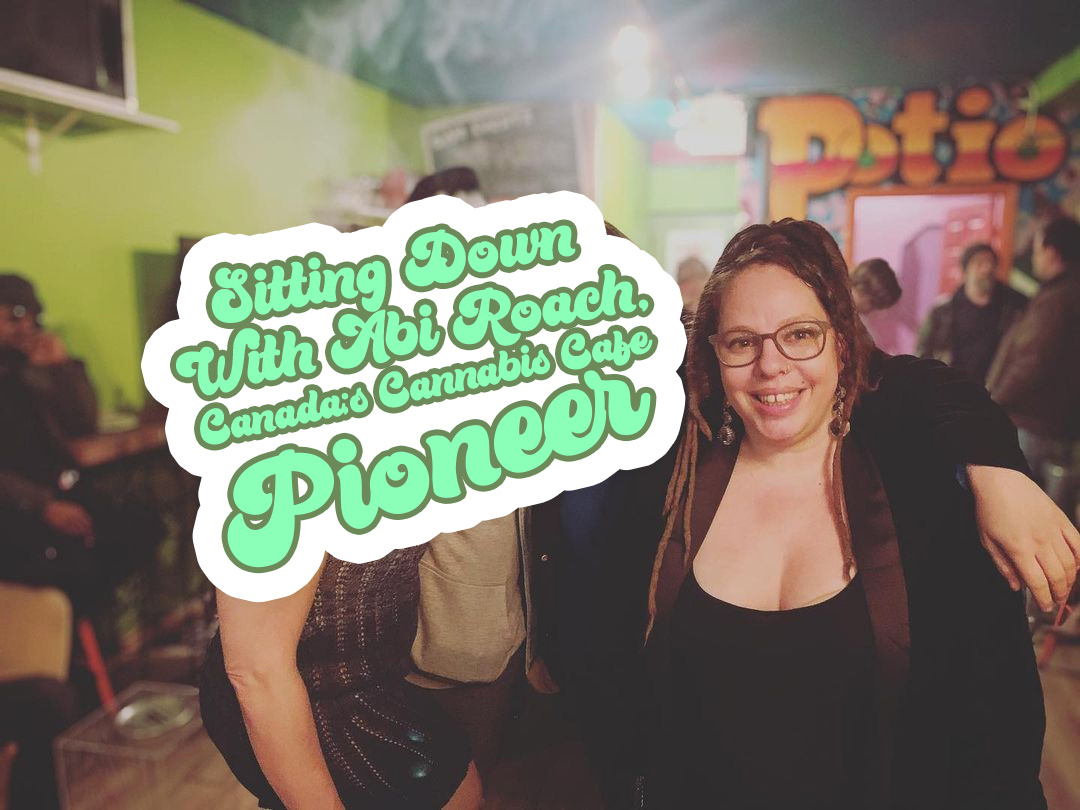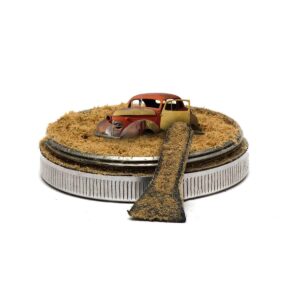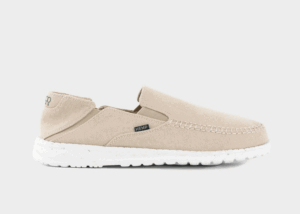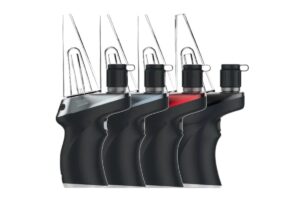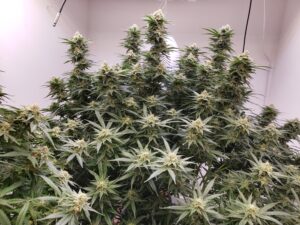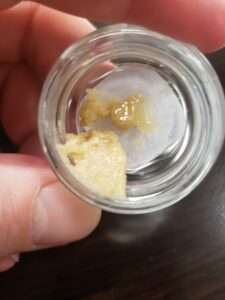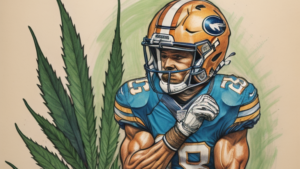Abi, thank you for taking the time to speak with us today. You’re a legend in Canada. With all the discussion of legal cannabis lounges, and the lack of action, we thought you might be the perfect person to talk to. In some of your earlier interviews you discuss the beginning days of HOTBOX as an idea. Discussing legalities with lawyers and jumping into the project, can you go into detail about your startup, risks involved and what gave you the motivation to take the jump into the grey area café market?
Hotbox was originally a headshop with a focus on all this cannabis lifestyle. After visiting Blunt Brothers in Vancouver, and going to Jamaica for the first time in 2001, I was inspired to convert the building we were in into a cannabis lounge extension to our retail store when we took over the lease. Originally we were sharing the building with a group of students.
Everything was much simpler at that time, there were no cell phones and the internet was AOL. We managed to get a restaurant licence with ease, and were able to allow smoking on the patio.
The laws were extremely vague, medical cannabis had become legal via the courts in the Parker decision, and cannabis possession became legal via the courts after a 16 year in Ontario fought and won a case claiming the laws were unconstitutional due to lack of medical regulations.
So the Hotbox became literally a de facto legal cannabis cafe.
We created our own rules which became the norm for all businesses which followed suit.
- No selling no buying
- No mooching
- No fishing (taking roaches out of ashtrays)
- No sleeping
- No bad vibes
We served awesome weed themed munchies, and sold bongs and pipes to pay the bills.
Everything was a risk, but that’s entrepreneurship. I always believed that change comes faster when the envelope is pushed slowly. The Hotbox did not technically break any laws, and we stayed within bylaws. But I always looked for the line and pushed it just a little further.
The concept for Hotbox was legalization through normalization. We served millions of cannabis consumers from all over the world in the 20 years I operated it, but we also served many customers who were not consumers, and had a wonderful experience with the brand, the tribe and the plant.
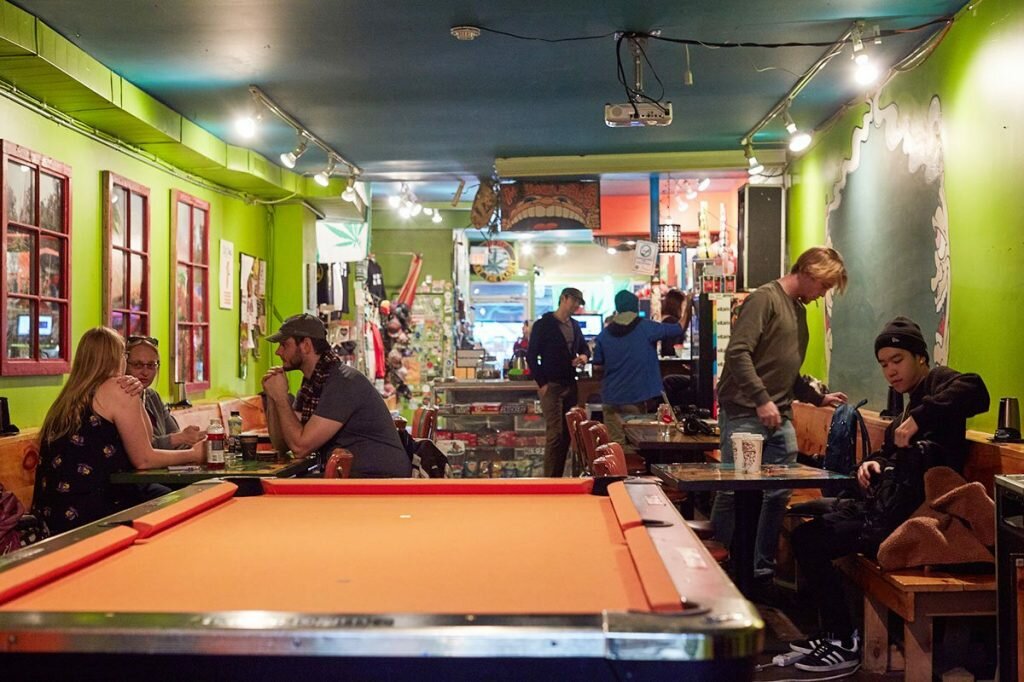

Amsterdam’s famous coffeeshops must have played a role in your vision for Hotbox. What aspects of these establishments were you most eager to bring to Canada, and how did you adapt those ideas to fit within the Canadian cultural context?
I was actually more inspired by Jamaica. Cannabis has become normalized in Jamaica, through open consumption and a pride in its cannabis culture, even though it is a very conservative country who’s majority of citizens are not cannabis consumers.
Since we did not experiment with the sale of cannabis until 2015, the business model had to be the accompanying experience to your cannabis consumption.
Amsterdam was an inspiration of what a cannabis cafe which could sell cannabis could be. In 2016 we opened a private club where we played around with a single serve restaurant style model of cannabis sales, and it was awesome! My favourite was the dab dish, where you got 3 different dabs layer beautiful on a sushi dish with a dabbed and an Enail.
How did the model work, was HOTBOX a subscription service, monthly club membership? How did you find the perfect model that let you thrive and sustain business while offering a product that people would come back for?
Hotbox was loosely based on the Chapters/ Starbucks model, I had worked there when I was a teenager and saw the benefit of having a cafe within a retail store. The concept was to have the customers walk through and interact with our retail experience on the way in and out. You would walk in, browse our uniquely merchandised store and had a positive interaction with our hemployees. You would then proceed to pay $5 to enjoy our cafe. The customer would bring their own cannabis and order from our curated menu of munchies and pasties, which included food, coffees, teas and smoothies. We later added a terpene bar and our own Hotbox branded CBD teas and coffee.
Hemp was a key base ingredient for many of our foods as well.
Once you were happily baked and full of relaxed energy, on the way out you would spot that bong you wanted on the way in. Our average basket spend per customer was $40.
We later expanded the Hotbox brand into many concepts. We had a magazine, a Growshop & seed bank, products, nightclub, antique store and most famously a bud & breakfast with 420 tour company in Jamaica. This was one of the first bud & breakfasts in the world opening in 2012. Hotbox was more than a lounge, it was a community of true brand followers.
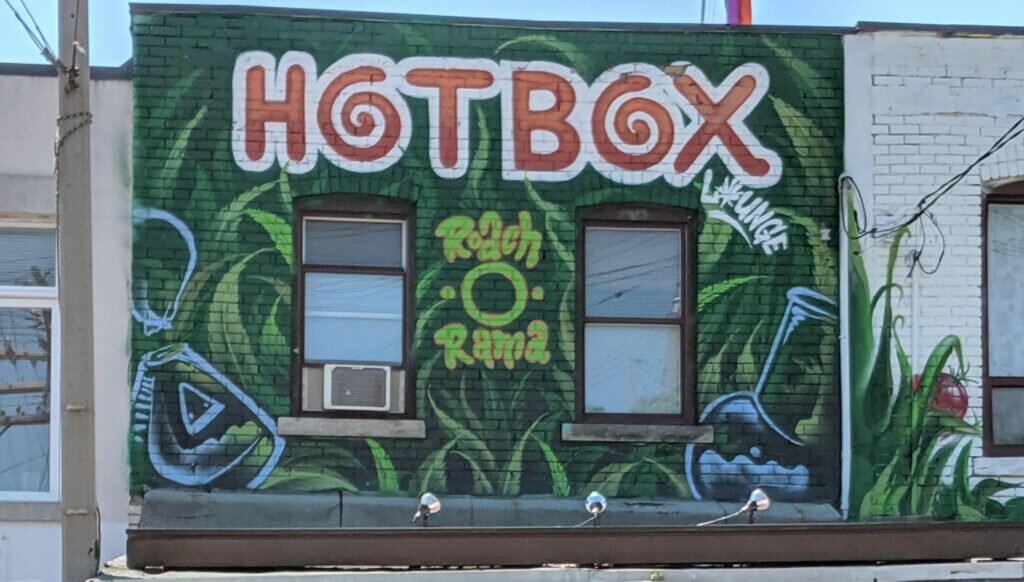

What was the initial response from the community, and was there any backlash from regulatory services?
Obviously there was some hesitation from the community, but I ensured full participation from our neighbors by supporting their local businesses and being good community members.
There was some push back from politicians who did not understand the concept and we had police visits. But I was being gifted in life with a charming personality and a disability. So I was extremely non threatening, and easy to work with. I believe this was the key to my 2 decades of success on so many fronts.
What was the climate like at the HOTBOX lounge? Was this a place people came to party, meet new friends, hang out with old friends – who did the lounge attract and what was the general atmosphere like for those who never had the chance to visit?
The Hotbox was a truly unique space. It was a community of people who loved cannabis. We welcomed everyone over the age of 18, all walks of life, ages, and lifestyles.
We ensured that everyone felt like family. To this day and cannabis conference you attend, you will meet people who either started their journey at the Hotbox, met their loved ones and closest friends, started companies.
The music was always good, the vibe was always perfect. Whether it was just a breakfast or one of our many special event nights which included music, comedy, karaoke and cannabis markets.
Hotbox was a vibe of its own.
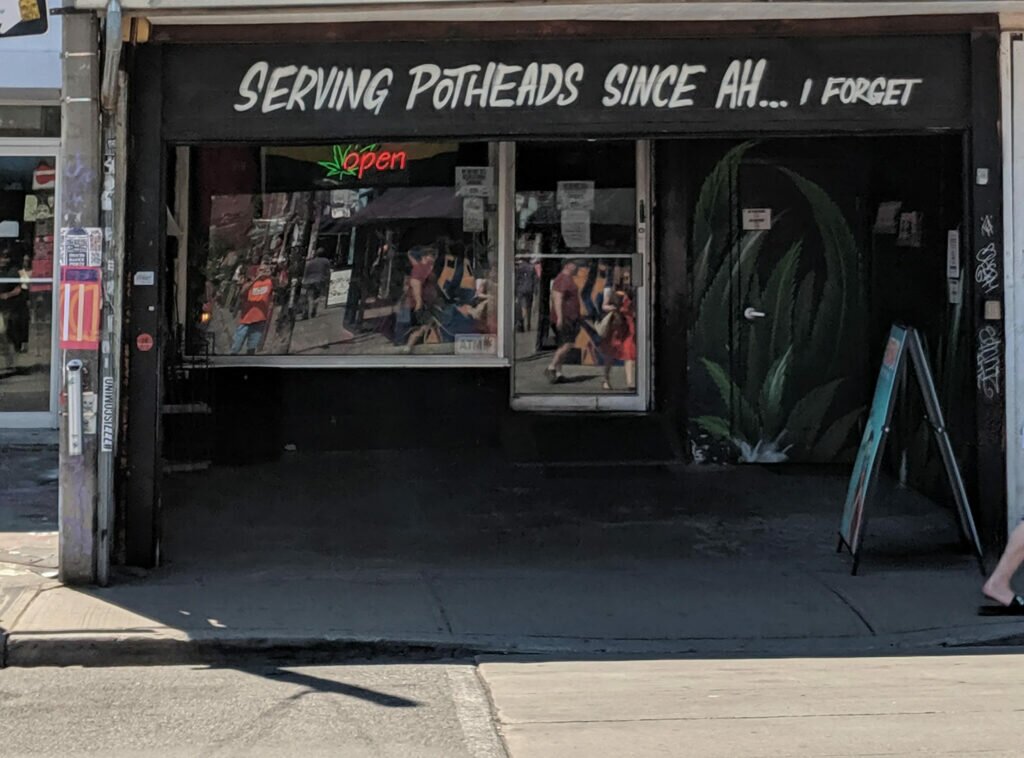

What was the key in HOTBOX’s longevity? We’ve had the chance to discuss opening lounges with a few entities and the sustainability is always in question. Was this a mix of the culture, location, a killer business model and good marketing, or what were then key areas of your business / marketing model that really helped HOTBOX thrive for so long?
The key was really my stubborn perseverance. I have a never give up attitude mixed with a problem solving skill.
Lounges are not an easy business, and they rely heavily on bylaws and local regulations.
Like any business you need location, killer marketing, and excellent merchandising. But with cannabis creating the vibe is everything!
Cannabis lounges are a space for consumption, but that’s 5 minutes out of the customer experience. How does the business model utilize the touch points in the consumer experience to build basket, that’s the real secret sauce.
With your experience in today’s cannabis climate, as well as a pioneer of an operation that was sustainable for years – What do you believe are the most critical steps that Canadians can take to create a more supportive environment for cannabis lounges to thrive? Which laws and regulations are really holding us back from the growth of cafes in Canada?
The regulations are all over the place, province to province, city to town.
It would be hard to make a federal framework. Currently most provinces allow for the consumption of non combustible cannabis, but the sale of cannabis is not allowed outside of a cannabis shop, and cannabis shops are not allowed to sell non cannabis products (other than accessories and swag). In order for lounges to work the sale of food and drink alongside cannabis would need to be permitted, as well as bulk sized packages for onsite single serve. There are also regulations around the service and delivery of cannabis which would require reform.
Inhaled cannabis will need much more reform, and social attitude adjustment. Smoking and vaping has been so demonized in the fight against tobacco, that I can not see these regulations changing anytime soon. But outdoor consumption is possible in most provinces, but again the sale of cannabis is restricted.
Adding special occasion permits would be a huge step in progress without a major overhaul of the existing regulations.
There are exceptions which already exist in the regs of each province, entrepreneurs just need to read inbetween the lines.
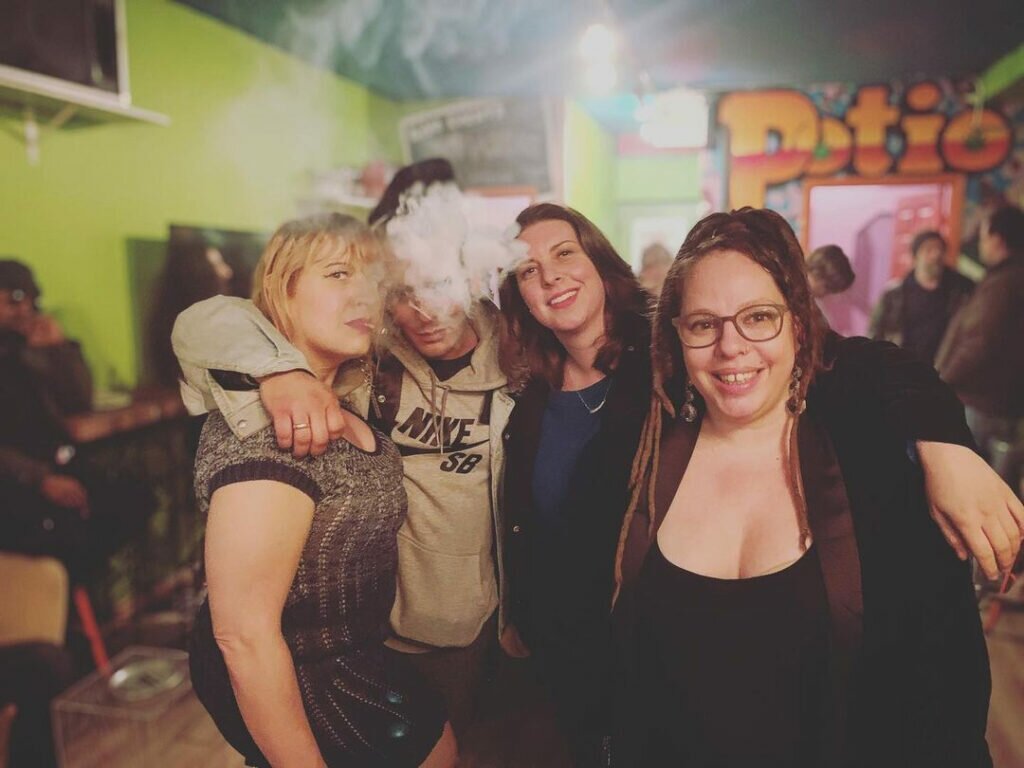

In hindsight, is there anything you would have done differently during your time operating Hotbox Cannabis Lounge, and with your experience on the legal side, can you see the same model thriving in the legal context with the current model we’re following?
Long term vision, I would have focused more on the lounge, without going too crazy with its sub businesses. But I loved everything I had accomplished, and all the life experiences I had whether I made money or not, and would have not changed a thing!
I am seeing some great business models popping up already. Kind events, got loud, LIT in Toronto and the few lounge concepts which are around, are great examples of taking what you got and pushing the envelope 1 inch at a time.
Hotbox left a lasting legacy on the Canadian cannabis scene although it’s been announced that it will be closing under the new ownership. What do you hope the future holds for cannabis lounges in Canada, and how do you envision their role in the broader cannabis culture?
The future is bright for lounges and consumption events.
I truly believe change in regulations is close in most provinces. And the scene in the US looks like it’s about to explode with creative energy.
Even my old customer Woody Harrelson has opened a lounge, which funny enough has many Hotbox inspirations from the looks of it.
We noticed that you are now working with the OCS on engaging the legacy market consumers. What’s the biggest change here, and do you see the legal system providing an on ramp that might help budding entrepreneurs like yourself in the older days – and what are the biggest changes that could be made to the current climate that would help encourage innovation and safe development in the space?
After 3 years with the OCS, I learned so much, and supported many cannabis entrepreneurs to transition into the legal market, as well as helping our regulators understand cannabis culture.
Last year I took a life break to have my beautiful baby girl. I decided that my talent would be better utilized on the private side again. I recently took a position with Mera Cannabis, as their head of Marketing CX & Merchandising. They are a fantastic independent cannabis processor who specializes in innovative extractions and full flower products.
They create products for many legacy & newer cannabis brands. I see this as the most exciting opportunity to support independent cannabis entrepreneurs come to the legal market.
I am extremely excited for the future, not only for myself, but for the industry as a whole. By the time my daughter is old enough to decide whether she wants to consume cannabis, it will be as normal as a cup of coffee.


